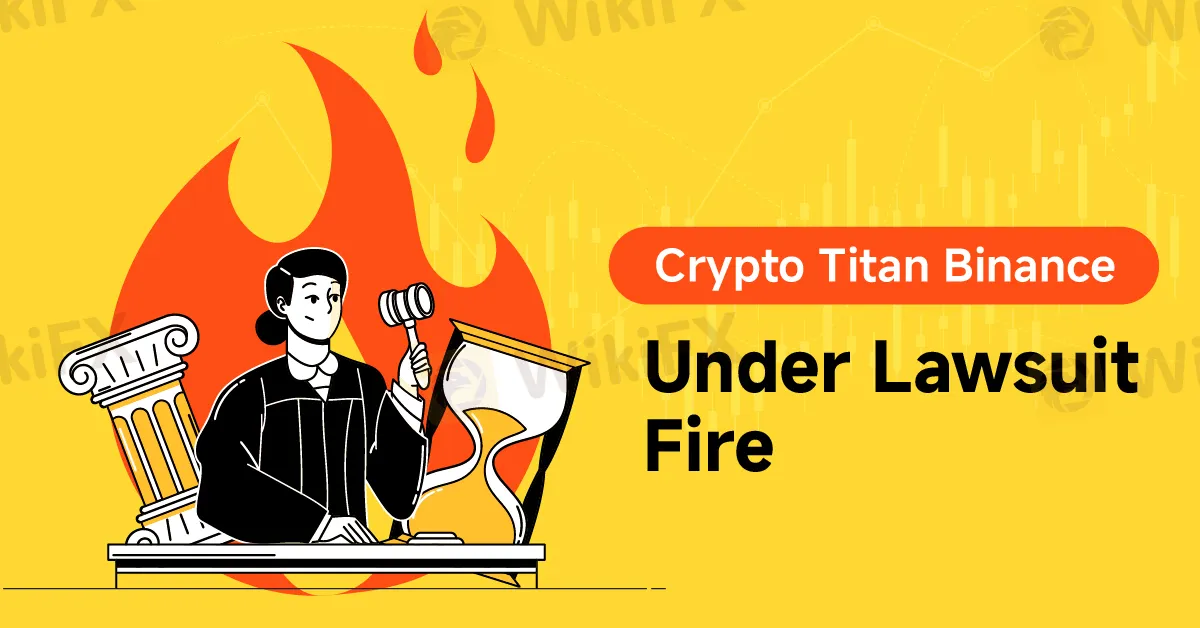简体中文
繁體中文
English
Pусский
日本語
ภาษาไทย
Tiếng Việt
Bahasa Indonesia
Español
हिन्दी
Filippiiniläinen
Français
Deutsch
Português
Türkçe
한국어
العربية
Crypto Titan Binance Under Lawsuit Fire
Abstract:A federal judge ruled that the majority of the U.S. Securities and Exchange Commission’s (SEC) lawsuit against Binance will continue to proceed.

A federal judge ruled that the majority of the U.S. Securities and Exchange Commission‘s (SEC) lawsuit against Binance, the world’s largest cryptocurrency exchange, will proceed. This decision, issued by Judge Amy Berman Jackson of the U.S. District Court for the District of Columbia, represents a significant setback for Binance, which had sought to have the SECs lawsuit dismissed.
The SEC's lawsuit, filed in June 2023, accuses Binance and its founder and former CEO, Changpeng Zhao, of several serious violations. These allegations include artificially inflating trading volumes, misappropriating customer funds, allowing U.S. customers to use its platform without proper restrictions, and misleading investors about its market surveillance practices. Furthermore, the SEC claims that Binance facilitated the trading of several cryptocurrency tokens that it considers to be unregistered securities, thereby violating U.S. securities laws.

Adding to these challenges, Binances legal troubles have been compounded by recent settlements. In November, Binance agreed to pay $4.3 billion to resolve charges brought by the Department of Justice and the Commodity Futures Trading Commission. These charges were related to breaches involving illicit financial activities. This substantial settlement underscores the increasing regulatory scrutiny Binance faces on multiple fronts.
Despite these obstacles, Friday's ruling offers a measure of optimism for the broader cryptocurrency sector. Judge Jackson concurred with a previous judge's determination that the SEC had not sufficiently demonstrated that secondary sales of Binances tokens—those sold by third parties on various exchanges—constituted securities. This aspect of the ruling could have significant implications for the regulation of cryptocurrency trading and the classification of digital assets.
The ongoing legal battle between the SEC and Binance underscores the tension between regulatory bodies and the rapidly evolving cryptocurrency industry. As the case progresses, it is likely to serve as a critical precedent for future regulatory actions and the development of clearer legal frameworks for digital assets.

Disclaimer:
The views in this article only represent the author's personal views, and do not constitute investment advice on this platform. This platform does not guarantee the accuracy, completeness and timeliness of the information in the article, and will not be liable for any loss caused by the use of or reliance on the information in the article.
Read more

Tokyo Police Arrest 4 for Unregistered FX Trading Scheme
Four men in Tokyo were arrested for running an unregistered FX trading operation, collecting over ¥1.6 billion from 1,500 investors.

Doo Group Expands Its Operations with CySEC License
Doo Financial, part of Doo Group, receives a CySEC license, allowing FX/CFD services in Europe. This strengthens its global presence and regulatory standards.

US Regulators Tighten Oversight on Bank Anti-Money Laundering Efforts
US regulators warn banks of stricter enforcement on money laundering rules, highlighting recent penalties against major lenders like TD Bank.

Exness: Revolutionizing Trading with Cutting-Edge Platforms
Exness offers traders seamless experiences with its Exness Terminal and Exness Trade app, providing flexibility, advanced tools, and low-cost trading.
WikiFX Broker
Latest News
BSP Shuts Down Uno Forex Over Serious AML Violations
ACY Securities Expands Global Footprint with South Africa Acquisition
Why Even the Highly Educated Fall Victim to Investment Scams?
Warning Against Globalmarketsbull & Cryptclubmarket
Rupee gains against Euro
Tokyo Police Arrest 4 for Unregistered FX Trading Scheme
Axi Bids AUD 52M to Acquire Low-Cost Broker SelfWealth, Outbidding Competitor Bell Financial
Crypto Influencer's Body Found Months After Kidnapping
US Regulators Tighten Oversight on Bank Anti-Money Laundering Efforts
Doo Group Expands Its Operations with CySEC License
Currency Calculator


